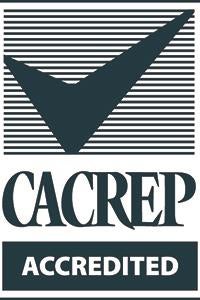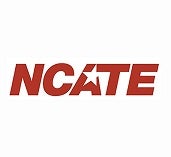Master of Science in Education Clinical Mental Health Counseling
CLINICAL MENTAL HEALTH COUNSELORS
To pursue a career as a clinical mental health counselor, you need the right education, training, and credentials to make that dream a reality. In order to work in the helping fields, each state has certain requirements for mental health care providers. Learn more about the educational requirements you must meet to be a clinical mental health counselor:
Educational Requirements
To become a clinical mental health counselor, at a minimum, you need a master’s degree. One requirement that is fairly typical a master’s degree from a CACREP-accredited program. CACREP-accredited programs require 60 credit hours of education.
The coursework for an online Clinical Mental Health Counseling degree includes classes on:
- Sociocultural foundations of counseling
- Research and program evaluation
- Human growth and development
- Psychopathology and assessment
- Lifestyle and career development
- Counseling theory and practice
- Group dynamics and group therapy
- Professional ethics and mandated reporting training
When you attend a CACREP accredited program, it will include all of these components. If your program is not CACREP accredited, you will need to have your coursework evaluated to determine if it is equivalent and meets the requirements. For example, St. Bonaventure University’s online CACREP-accredited MSED Clinical Mental Health Counseling program prepares graduates to meet all the requirements necessary to sit for New York state licensure. Depending on your program as well as practice state, however, you may have to complete additional coursework or fieldwork before you can be permitted to provide counseling services.
Training Requirements
In addition to traditional coursework, to work independently as a clinical mental health counselor, you must have applied experience. Most states require a standardized number of hours of supervised experience (1500 to 3000 hours is fairly typical). During the supervised experience, you would work with clients in areas such as case management. You may meet weekly with a supervisor, whom you will discuss your work with. They may have you record your sessions so that you can review them together. They will also look over your record keeping to ensure you are properly documenting the work you are doing with clients. Your supervisor may be your employer or someone at your workplace who is qualified to supervise.
Licensure Requirements
Some states also require you to pass certain licensure examinations—typically the National Clinical Mental Health Counselor Examination (NCMHCE). When you have the right education, the licensure examinations may not be too difficult, although you may need to do some studying.
The exact title and type of license you would obtain will vary by state. In some states, you might have to get a lower license, such as Licensed Associate Professional Counselor, while you are still obtaining your hours of supervision and completing examinations. At a higher level, you might have a title such as Licensed Professional Counselor or Licensed Clinical Professional Counselor. As you obtain a higher level of licensure, you will have more ability to work independently, without supervision.
SBU’s Online MSED Clinical Mental Health Counseling Credential
When you plan your education and training path towards becoming a clinical mental health counselor, you will want to look at the specific requirements in the state you plan to live and work in. Many states model their requirements after CACREP standards, so if you have completed a program with that accreditation, you will likely have an easier time of becoming licensed.
St. Bonaventure University Online offers a CACREP-accredited program that may help you gain the knowledge required to prepare you for your state’s licensure exam. An online program is an ideal option for working professionals. With online education, you can learn the skills and meet the educational requirements needed to become a clinical mental health counselor at your own pace. Upon graduation, you will be able to pursue licensure and seek a job in whatever counseling setting interests you.
Below is a sample list of courses you will be required to complete for the online Master of Science in Education Clinical Mental Health Counseling. To view a full list, please download a program brochure.
The course addresses development and cognitive processes governing learning from conception to death. Normative, non-normative and historical effects within childhood, adolescence, adulthood and later life are presented. Formal developmental and learning theory is emphasized in conjunction with practical interpretation and application. The course provides an orientation and background for sound educational practices.
The course acquaints the student with the basic knowledge base and skills required for the practice of counseling. Classroom work will focus on the development of specific counseling skills. Students will use role play, audio and videotapes to facilitate the learning process. Additionally, students will explore counseling theory and research.
To acquaint the beginning graduate student with the field of abnormal psychology with an emphasis on the definitions and distinctions between the various abnormal disorders, an introduction to the current research in the field, a discussion of the numerous continual controversial issues and a review of the data-based treatment approaches. In addition, this course will assist the graduate student to understand the nature, needs, and problems of individuals at all developmental levels over the life span and to understand the nature, needs, and problems of a multicultural and diverse society.



